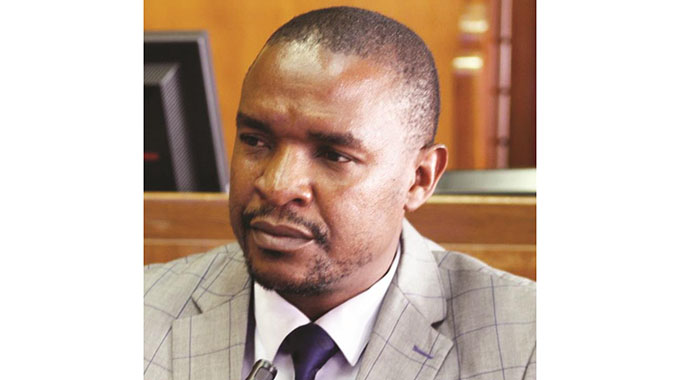Editorial Comment: Glimmer of hope amid soccer ban

DOMESTIC football hasn’t had a lot to smile about, for the past year, since the local game was brought to a halt as part of the measures to try and contain Covid-19.
This month marks exactly a year since the last ball was kicked on the domestic scene, with Highlanders hosting FC Platinum, in what was supposed to be the season-opening Castle Challenge Cup at Barbourfields.
However, the country’s leadership correctly intervened after that game and suspended local football as part of the cocktail of measures, to stop the spread of the deadly virus.
While some international matches have been played, including the Warriors’ showdown against the Desert Foxes of Algeria, in their AFCON qualifiers, the local football programme has been on hold.
The bulk of the news, which has been coming from the local game has been gloomy.
We have heard players and coaches crying out loud and clear that they have been suffering without competitive football – with their income, which is supplemented by winning bonuses, having been badly eroded.
We have also heard some of the top-flight clubs saying without playing and without the income they usually generate from gate receipts, they now face the possibility of collapsing, .
Many of their sponsors, the clubs claim, have deserted them, arguing they cannot continue pumping money into their coffers when their brands were not getting the mileage which usually comes when there is action, that is, on the fields.
But, amid all this gloom, we saw a flash of light this week, when the Harare City Council announced they were finalising an offer to provide the Premier Soccer League with land to build their headquarters, with a decision, in the matter, expected in the next two weeks.
Stewart Mutizwa, the acting Mayor of Harare, said they were ready to enter into partnerships with the top-flight league and their clubs which will benefit all parties.
“As Harare City Council, we believe that the PSL should not be a briefcase organisation, they should have a place which they can be able to call their own,’’ Mutizwa said.
“We are aware that the organisation should meet the standards, and the basic requirement is for them to have their own place, where they conduct administrative duties from.
“As council, we have allocated a 5 000 square-metre land to the PSL in Strathaven for them to build their offices.
“We are finalising, as council, so that we issue them the land in two weeks’ time. There are so many advantages for an organisation of this magnitude to have its own property.’’
Mutizwa met PSL chairman, Farai Jere, in Harare this week where they discussed the proposed deals.
Since the top-fight league’s formation in 1992, the PSL have been using rented facilities in the Eastlea suburb of the capital to conduct their business.
Clearly, in an age where the Premiership clubs are expected to meet club licensing requirements like having offices from where their business is conducted, the PSL have found themselves, in a difficult position, to try and enforce this, when they haven’t led by example.
They can argue that, at least, they have a fixed structure, from where they run the league, but this doesn’t instil confidence, among the clubs, given that the supervisory authorities, themselves, do not have a place they call their own.
As the leaders, it is only proper that the PSL should set the right example, and having their offices, would be a good start in helping them try and spread the message of the values of professionalism.
They can’t spread such a value, especially the importance of the clubs needing to have proper offices, club houses and training facilities, when the PSL, themselves, do not have their own place, and run their affairs from a rented property.
That is why we believe the deal with the City of Harare represents a huge step forward, for our top-flight league, in their quest to bring themselves in line with what is happening elsewhere.
Football has become big business and, even the domestic Premiership, for all its challenges, employees thousands of people, as an industry.
Having their land, where they can build their headquarters, will also send the right message, especially to the sponsors, who are the lifeblood of football, and leagues, like the PSL.
Big corporate sponsors want to be associated with a league that shares their vision, which understands the value of an investment into immovable property, which can then be used, as and when the league’s leadership want, as collateral, to secure loans, from the banks. It’s the way the other major leagues, around the world, operate.
And, it’s sad that, for about 30 years now, those who have been in charge of our top-flight league, have not realised the importance of investing into immovable property.
It’s a shame that, for about three decades now, they have found it convenient to run their affairs, from a rented property, in Harare, when they should have long invested into something that belongs to them.
When we have a Division One club like Simba Bhora, investing tens of thousands into the renovation of their hometown stadium in Shamva, what has been stopping the PSL, as big as it is, from seeing the wisdom of an investment, into their home?
The refreshing thing, though, is that the process has started, even though this should have happened a long time ago, and everyone, in the leadership of the league, and in our game, should support this initiative.










Comments